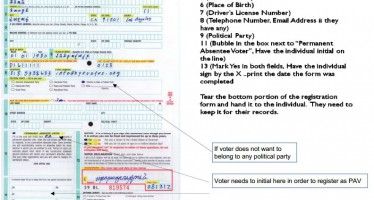FPPC investigates ‘No on 17’
JUNE 14, 2010
By LAURA SUCHESKI
Proposition 17 may have been defeated at the polls, but that doesn’t mean the work is over for the campaign that successfully fought the measure on June 8. The Fair Political Practices Commission has agreed to investigate No on 17 sponsor Campaign for Consumer Rights.
Roman G. Porter, executive director of the state agency, wrote in a letter on June 3 that the Enforcement Division “will investigate the allegations” raised by Yes on 17, the campaign for a change in automobile insurance regulation sponsored almost entirely by California’s third-largest auto insurance provider, Mercury Insurance.
Spokespersons for Yes on 17 contend that Campaign for Consumer Reform violated campaign finance disclosure laws by siphoning donations from the Stop Prop 17 Web page to sponsoring organization coffers, who then donated the money back to No on 17 with no word on its original sources. “The Yes on 17 complaint raises questions of money-laundering, which the FPPC considered one of the most serious violations of the Political Reform Act,” says Chip Nielsen, counsel for Yes on 17.
Hurling allegations of voter fraud at rivals is a common campaign tactic designed to get bad press for enemies. “I think the insurance companies are trying to distract reporters from their expensive campaign rather than focusing on the issues at hand,” said Doug Heller, executive director of Campaign for Consumer Reform. But the FPPC does not investigate every complaint it receives, and evaluates the merit of each complaint before deciding whether to open an investigation.
The letter cautions readers not to jump to conclusions about Campaign for Consumer Rights’ activities just based on their decision to investigate. Those who initiated the complaint, however, find it significant that the FPPC chose to investigate this case when it has recently denied the high-profile complaint from Kamala Harris against Chris Kelly.
“In the Harris complaint against Kelly, Kelly probably responded immediately with evidence that the FPPC found compelling. If they would have provided evidence of their compliance immediately, the FPPC would have given them a letter like they sent Kelly,” says Nielsen, speculating as to why No on 17 finds itself under fire while others do not.
Heller doesn’t believe the investigation is significant. “Everybody has the right to file a complaint, whether you’re a citizen or a multibillion-dollar corporation spending $16 million. In this case, the FPPC has an obligation to look into it. The FPPC is doing its job, and we really appreciate that.”
And according to Heller, the FPPC will find Campaign for Consumer Rights is innocent. “We have responded. We have disclosed every contribution that came in, we complied with the laws, and we disclosed contributions in a timely manner.”
The FPPC plans to investigate the case, and notify the parties of their findings when finished. No word on how long that’s expected to take.
Related Articles
New York Times’ ignorance on California: How it’s revealing about state Dems, media
Oct. 15, 2012 By Chris Reed On Sunday, The New York Times printed a long article about the California government’s
Union battles Caltrans over “inadequate” new office space, $1.7 million partitions
A public employees’ union is questioning Caltrans’ pricey decision to move one of its district offices from one side of
Complaint alleges people with disabilities barred from voting
A complaint filed earlier this month with the U.S. Department of Justice alleges that thousands of Americans with disabilities have been




